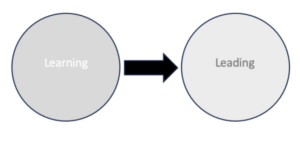Key points:
Editor’s note: This article on learning and student motivation originally appeared on the Christensen Institute’s blog and is reposted here with permission.
In 2020, my wife and I bought a used 2017 Nissan Leaf (an all-electric vehicle) for her commute to work. We thought it was a practical choice, but we soon found our purchase had come with some serious limitations. First, the car had very limited range, meaning we had to restrict our trips to about a 30-mile radius from our house. Then, about a year into owning the car, an even worse issue came up that gave us major heart palpitations: the car would completely lose power and stall while climbing the freeway grade between our valley and the neighboring town where my wife works.
Despite our best efforts—driving conservatively, using the Eco mode, turning on regenerative braking, and installing lightweight tires—the problems persisted. None of those efficiency improvements could compensate for the real problem: the car’s degraded battery. After working and waiting through some major customer service hurdles caused by pandemic supply chain issues, we finally got the problem fixed. Nissan replaced the battery on warranty. Suddenly, our once troubled Leaf was able to climb the hill without stalling and complete a 90-mile round trip to Los Angeles on a single charge.
As I’ve thought about this experience recently, I’ve noticed some interesting parallels with common approaches to improving education. We often attempt small tweaks and modifications in our educational system—upgrading curriculum, training teachers on new instructional strategies—hoping to see major gains in student achievement. But much like our initial efforts with the Leaf, these changes often seem to have only marginal impacts on learning. Maybe the reason why is that we’re not addressing the real issue. Maybe we’re neglecting the ‘battery’ at the heart of education: student motivation.
- SEO Powered Content & PR Distribution. Get Amplified Today.
- PlatoData.Network Vertical Generative Ai. Empower Yourself. Access Here.
- PlatoAiStream. Web3 Intelligence. Knowledge Amplified. Access Here.
- PlatoESG. Automotive / EVs, Carbon, CleanTech, Energy, Environment, Solar, Waste Management. Access Here.
- PlatoHealth. Biotech and Clinical Trials Intelligence. Access Here.
- ChartPrime. Elevate your Trading Game with ChartPrime. Access Here.
- BlockOffsets. Modernizing Environmental Offset Ownership. Access Here.
- Source: https://www.eschoolnews.com/innovative-teaching/2023/08/24/learning-student-motivation/
- :is
- :not
- :where
- $UP
- 1
- 10
- 12
- 2017
- 2020
- 30
- a
- Able
- About
- achievement
- across
- addressing
- After
- all-electric
- also
- an
- and
- Angeles
- appeared
- approaches
- article
- At
- author
- banner
- battery
- BE
- BEST
- between
- bought
- but
- by
- came
- car
- caused
- Center
- chain
- Changes
- charge
- choice
- Christensen
- climb
- Climbing
- come
- Common
- Commute
- complete
- completely
- contributors
- could
- Curriculum
- customer
- Customer Service
- Demand
- description
- disruptive
- does
- done
- Education
- educational
- efficiency
- efforts
- Even
- experience
- fellow
- Finally
- First
- fixed
- focuses
- For
- found
- freeway
- from
- fueled
- Gains
- grade
- had
- Have
- he
- Heart
- height
- her
- here
- his
- House
- http
- HTTPS
- Hurdles
- i
- Impacts
- improvements
- improving
- in
- initial
- Innovation
- innovative
- installing
- Institute
- instructional
- interesting
- into
- issue
- issues
- IT
- Jobs
- learning
- lightweight
- like
- limitations
- Limited
- Look
- look like
- los
- Los Angeles
- lose
- major
- maybe
- meaning
- Media
- Mode
- models
- Modifications
- Motivation
- much
- my
- neglecting
- New
- Nissan
- None
- of
- often
- on
- once
- only
- our
- pandemic
- Parallels
- permission
- plato
- Plato Data Intelligence
- PlatoData
- points
- Posts
- potential
- power
- Practical
- practices
- Problem
- problems
- purchase
- range
- real
- reason
- recently
- regenerative
- replaced
- research
- Resources
- restrict
- round
- Scale
- see
- seem
- senior
- serious
- service
- single
- small
- some
- Soon
- Student
- studies
- Study
- supply
- supply chain
- system
- teachers
- that
- The
- their
- then
- theory
- These
- this
- those
- thought
- Through
- to
- Training
- trip
- Turning
- us
- used
- using
- Valley
- vehicle
- very
- Waiting
- was
- we
- What
- while
- why
- wife
- with
- without
- Work
- working
- works
- worse
- would
- year
- zephyrnet













